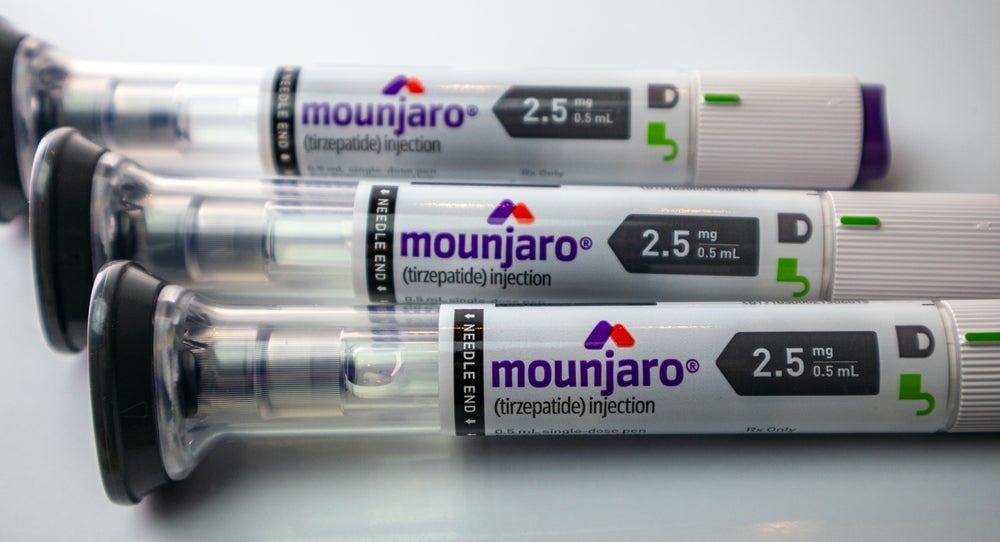AstraZeneca’s Phase III Lung Cancer Data Fails to Hit the Mark With Investors
AstraZeneca announced the main findings of a Phase III trial for an antibody-drug conjugate (partnered with Daiichi Sankyo) for the treatment of lung cancer. However, the company’s stock dropped by almost 6% in premarket trade, suggesting that investors were underwhelmed by the data presented. Datopotamab deruxtecan (Dato-DXd) has shown “statistically significant improvement” in the rate […] The post AstraZeneca’s Phase III Lung Cancer Data Fails to Hit the Mark With Investors appeared first on LifeSci Voice.

AstraZeneca announced the main findings of a Phase III trial for an antibody-drug conjugate (partnered with Daiichi Sankyo) for the treatment of lung cancer. However, the company’s stock dropped by almost 6% in premarket trade, suggesting that investors were underwhelmed by the data presented.
Datopotamab deruxtecan (Dato-DXd) has shown “statistically significant improvement” in the rate of progression-free survival among individuals with non-small cell lung cancer, according to pharmaceutical partners, who are withholding more specifics at this time. Individuals with locally progressing or metastatic NSCLC with at least one other prior treatment had their survival compared with those who received docetaxel, the gold standard in chemotherapy.
The lack of evidence for the other key goal of the dual endpoint strategy – overall survival – appeared to dampen investor enthusiasm. An “early trend was observed” for Dato-DXd, but the report claims that this pattern did not reach statistical significance since OS data was not developed enough. Moreover, some grade 5 occurrences – deaths – happened throughout the testing, further raising safety concerns.
According to reports, investors were hoping to hear more robust claims from AstraZeneca on the effectiveness of the drug. Bloomberg cited analysts from Jefferies, who say the company’s own explanation of the data indicates the advantage is less significant than expected.
However, the market for effective therapies for NSCLC is still accessible and, as such, it is too early to make a decision at this time.
The standard treatment is chemotherapy, which has the unfortunate side effect of killing off healthy cells along with the cancerous ones. Antibody-drug conjugates (ADCs) offer the ability to spare healthy cells since they use an antibody to go after a protein found on the cancer cells and transmit the linked chemo directly.
There is already an ADC available from AstraZeneca. Enhehrtu, a HER-2 focused ADC co-developed with Daiichi Sankyo, received FDA approval for breast cancer in 2019. Following that accomplishment, the parties agreed to a $6 billion agreement for Dato-DXd in 2020. Studies in breast cancer are now underway, and NSCLC is the first possible indication for approval.
In 2020, the FDA authorized Trodelvy from Gilead. It’s currently commercially available for urothelial and breast malignancies. There are ongoing studies looking at the effects of Trodelvy on lung, head & neck, and endometrial cancers. Recent extensions of the ADC’s approved uses indicate that it will likely achieve blockbuster status for Gilead.
While AstraZeneca is hoping to have the first TROP2 ADC authorized for NSCLC, Trodelvy is first-in-class. According to the release, the company would be offering information to regulatory agencies.
Susan Galbraith, AstraZeneca’s EVP for oncology R&D, remarked, “These first Phase III trial results from the datopotamab deruxtecan clinical program provide compelling evidence for the potential role this TROP2 directed antibody-drug conjugate can play in treating patients with lung cancer.”
Merck is also competing with an anti-TROP2 ADC in Phase II and Phase III studies for non-small cell lung cancer and breast cancer, respectively. The ADC showed promising antitumor effectiveness, shrinking tumors in 44% of the 39 individuals in Phase II NSCLC research.
The post AstraZeneca’s Phase III Lung Cancer Data Fails to Hit the Mark With Investors appeared first on LifeSci Voice.
What's Your Reaction?


































